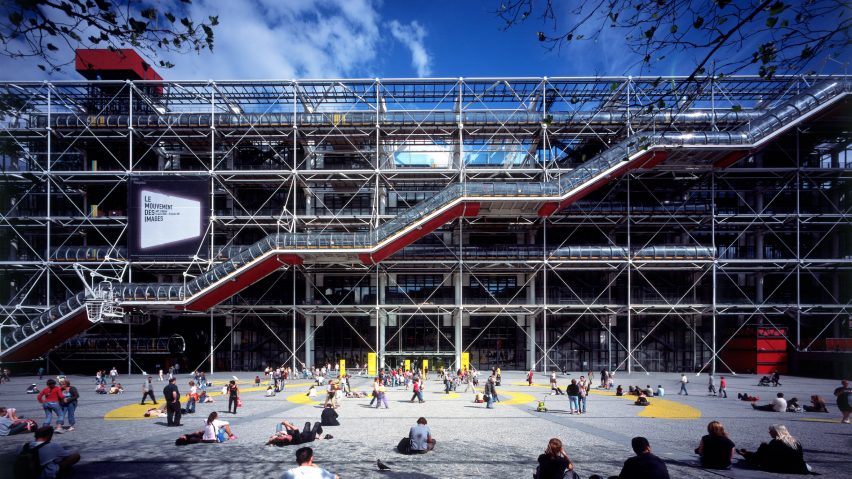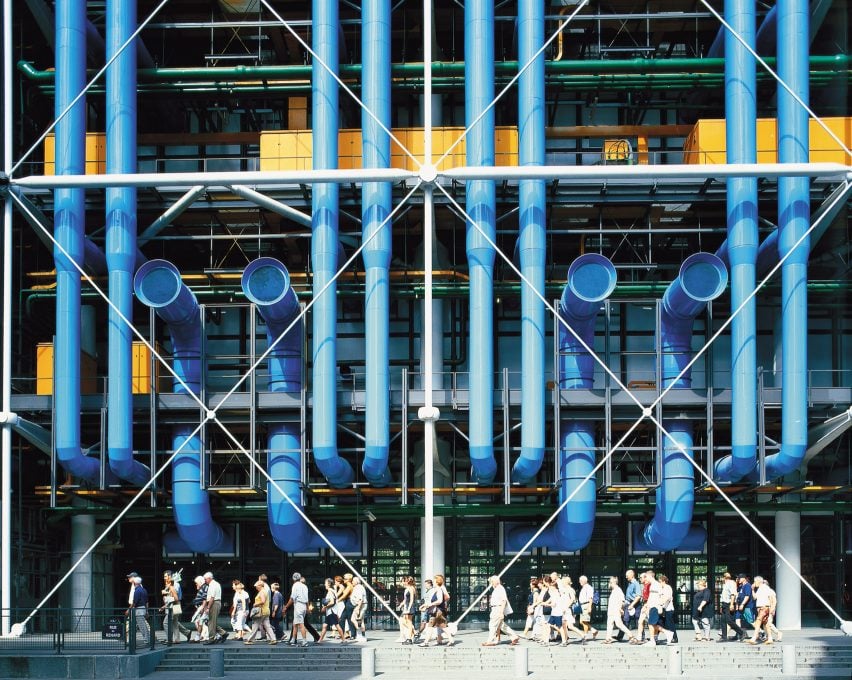
Centre Pompidou in Paris faces four-year closure for repair works
France's culture minister has revealed that the high-tech Centre Pompidou in Paris by Renzo Piano and Richard Rogers will be closed from 2023 to undergo major renovations.
Speaking to French newspaper Le Figaro on Monday, culture minister Roselyne Bachelot said that the closure of the centre, which is one of Paris' top cultural buildings, was required in order to repair and replace its visibly ageing components.
The centre will close for restoration from 2023 and the repair works will continue until at least 2027.
Closure is quickest and cheapest option
The Centre Pompidou, known locally as the Beaubourg, is best known for its radical inside-out aesthetic, which sees its superstructure and mechanical services placed across its exterior.
Since its opening in 1977, it remains the largest museum for modern art in Europe. It is also home to a vast public library and used as a space for music and acoustic research.

Today, however, many of the building's elements are in need of replacing, such as its heating and cooling system, escalators and elevators. It also contains asbestos that needs urgent removal.
Bachelot said that closing the venue was, therefore, the quickest and cheapest way to achieve this.
"There were two options on the table, one being to restore the centre while keeping it open, the other being full closure," Bachelot told Le Figaro.
"I chose the second because it turned out to be shorter in time and a little cheaper."
Second time centre is forced to close
Bachelot's announcement follows a warning issued by the French government in September 2020 that the centre would soon have to face at least a partial closure for repair works.
However, the Centre Pompidou's president Serge Lasvignes told Le Figaro that plans have now been put in place officially as "we no longer have a choice, the building is in distress".
The upcoming restorations mark the second time that the Centre Pompidou has faced closure due to construction works since its opening.
The first time was in 1997, during its 20th anniversary year, for a three-year renovation that increased the exhibition space available inside.
Centre Pompidou is a high-tech landmark
Described by Piano as a "big urban toy", Centre Pompidou is widely regarded as the landmark that drew global attention to the influential high-tech movement that emerged in the UK in the late 1960s.
With its building services and structure on its exterior, it is designed so that the internal spaces are highly flexible and can be easily rearranged. However, this radical design was initially met with hostility – and was first described by French newspaper Le Monde as "an architectural King Kong".
The centre featured in Dezeen's high-tech architecture series, in which we profiled the architects and buildings of the high-tech movement. Other notable examples of architecture from the era include the Renault Distribution Centre by Foster Associates, The Lloyd's building by Rogers and Reliance Controls by Team 4 – the former studio of Rogers, Norman Foster, Su Brumwell and Wendy Cheesman.
Main image is courtesy of Rogers Stirk Harbour + Partners.